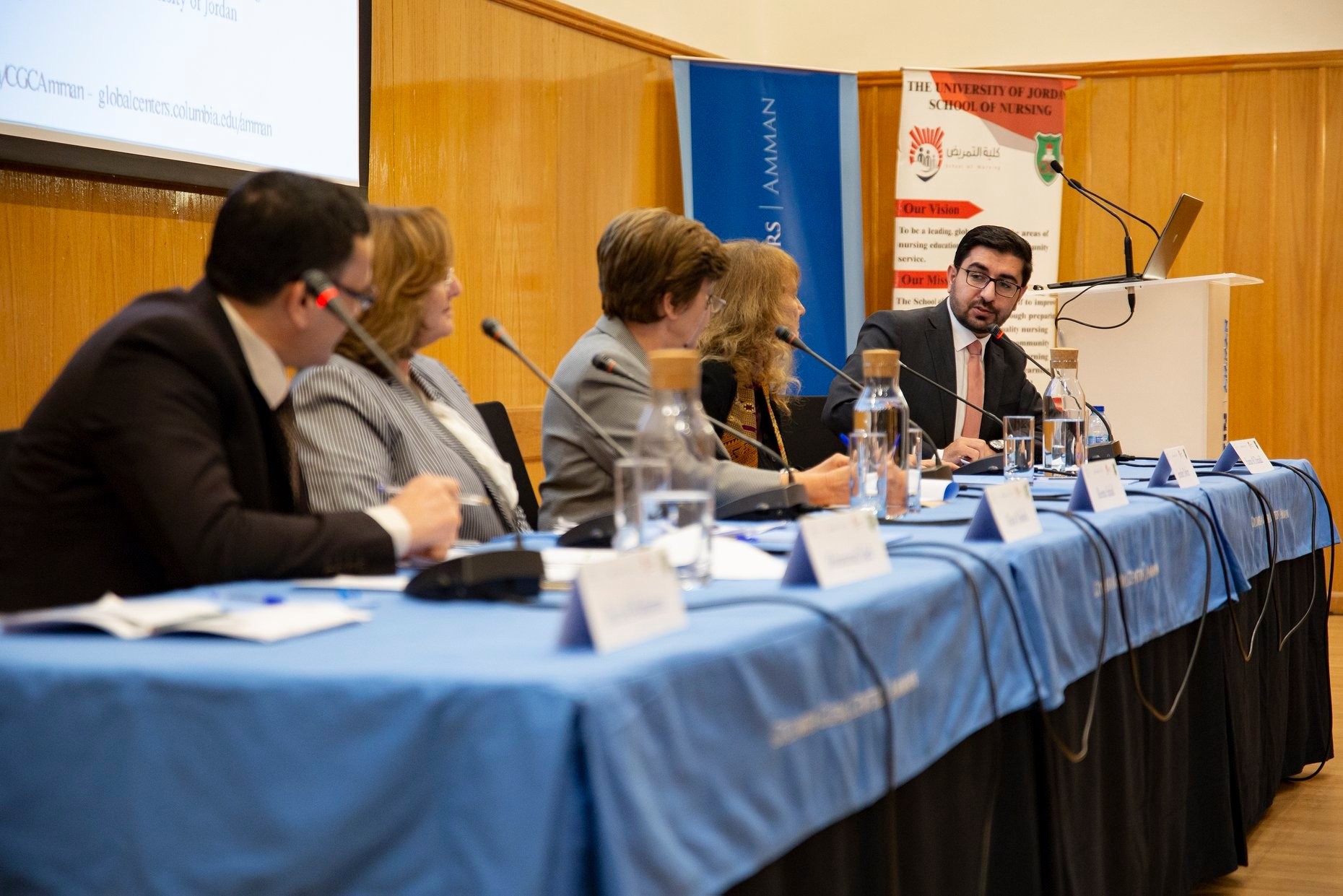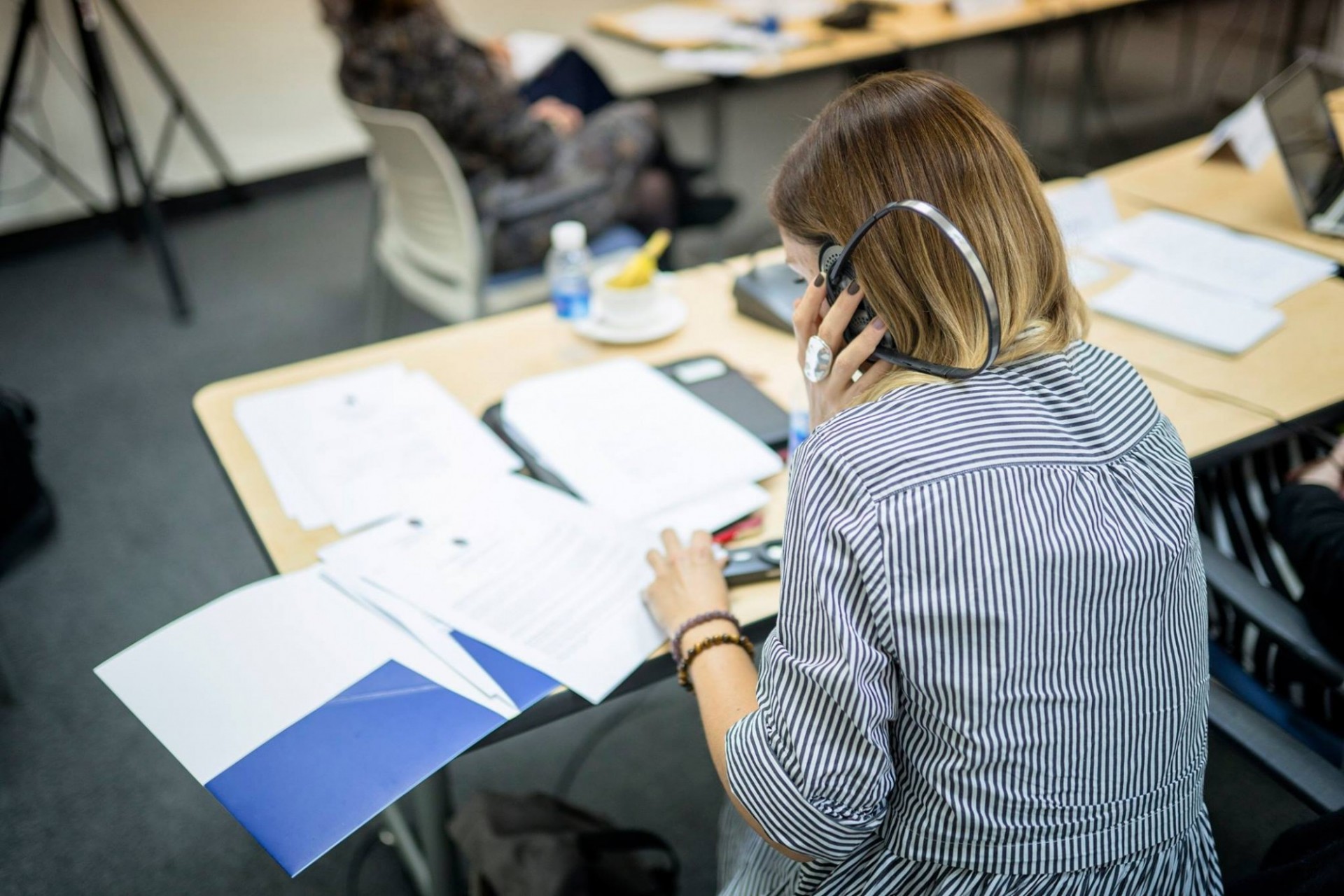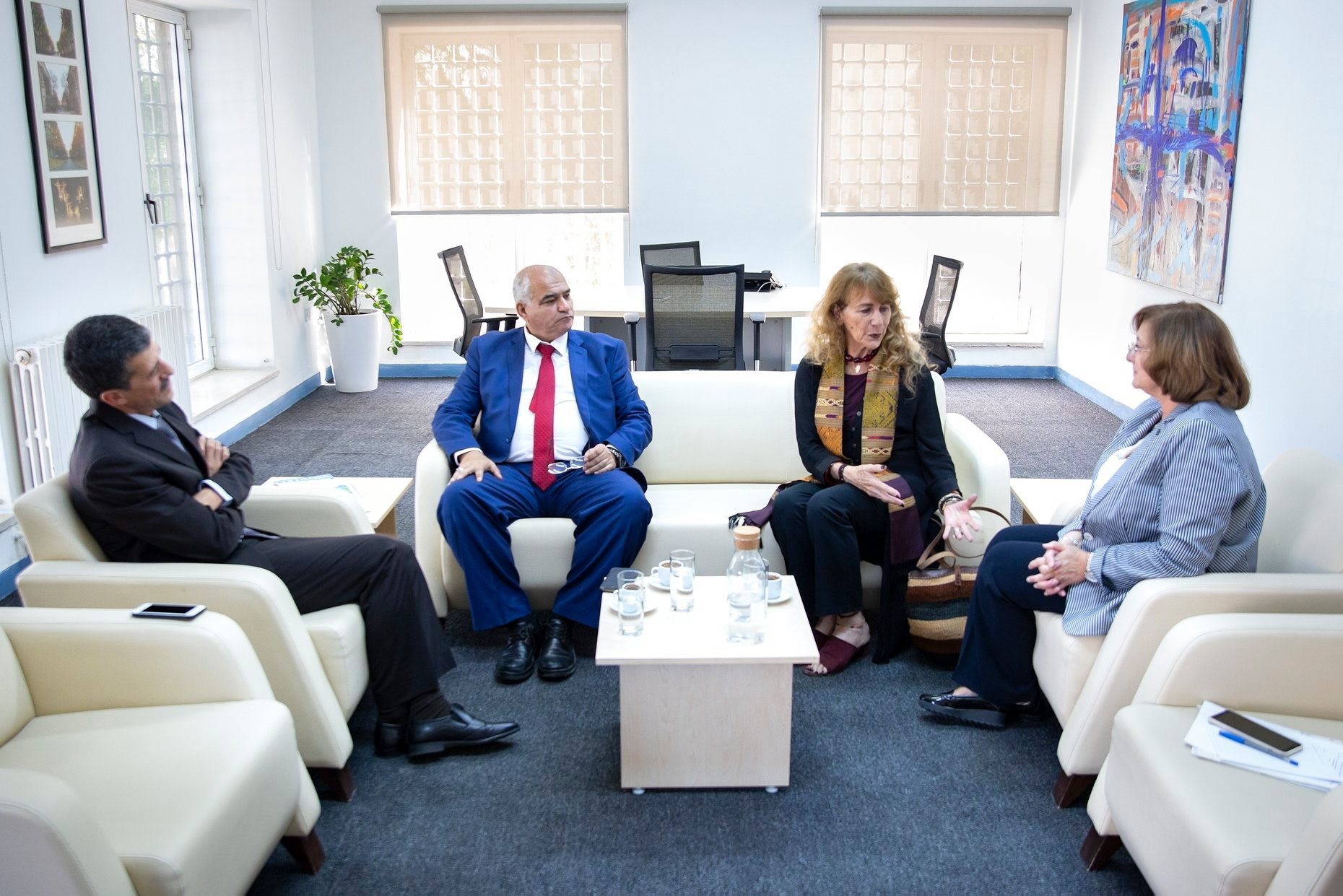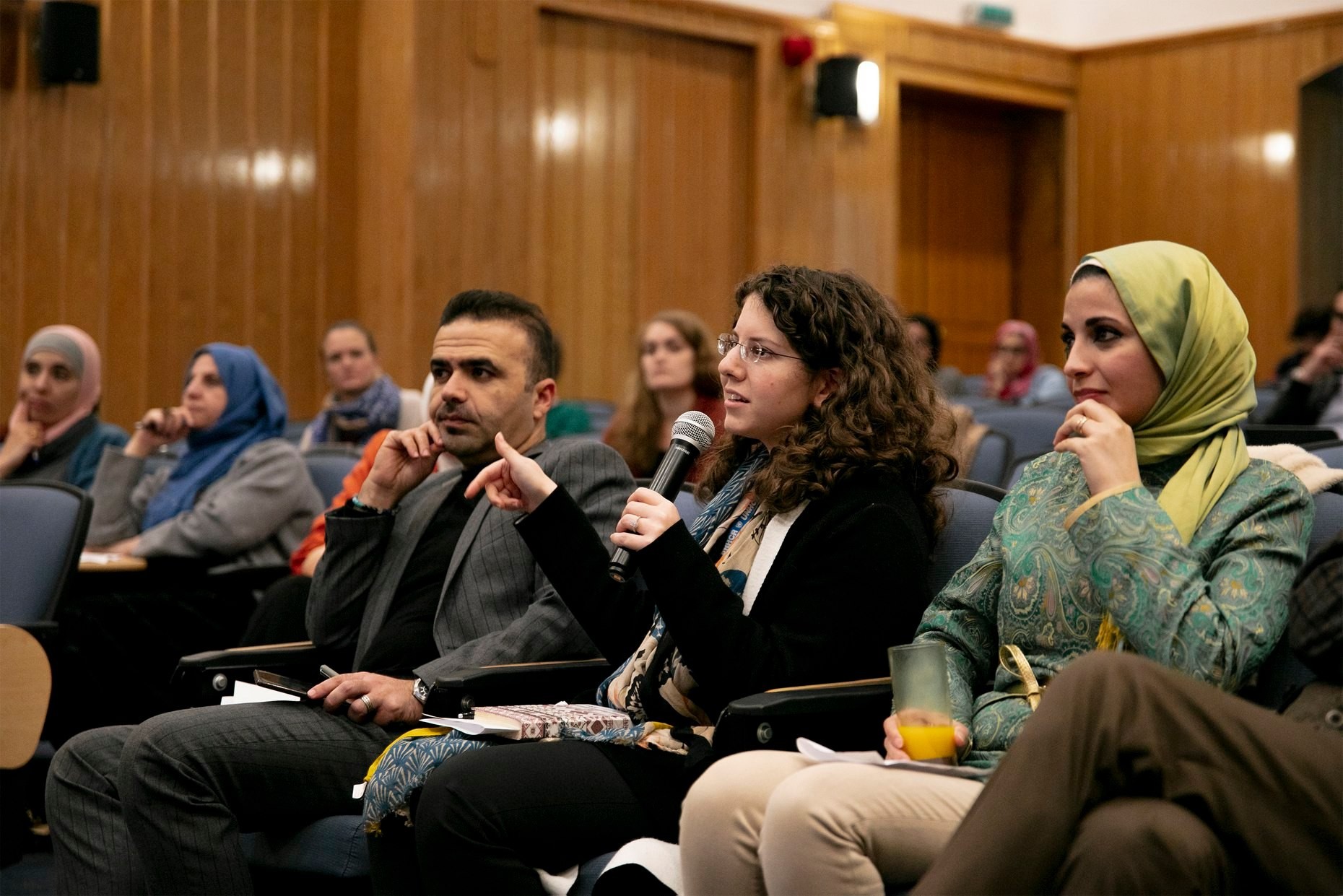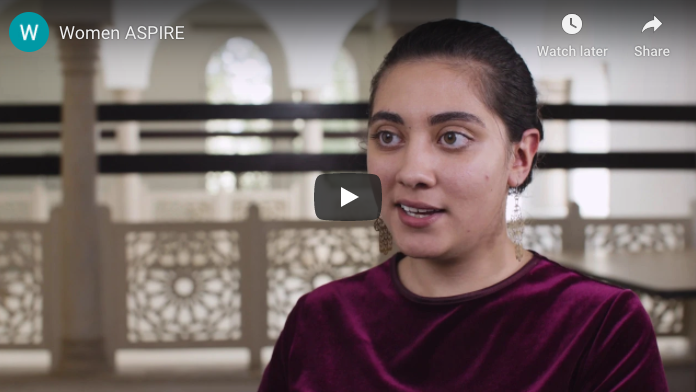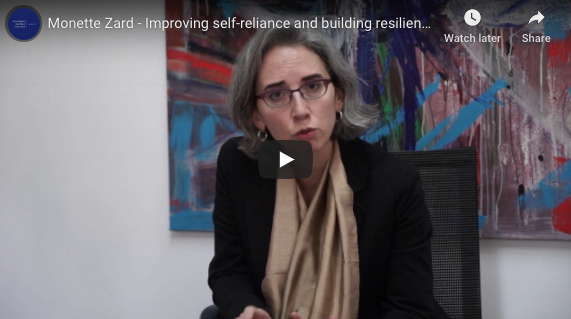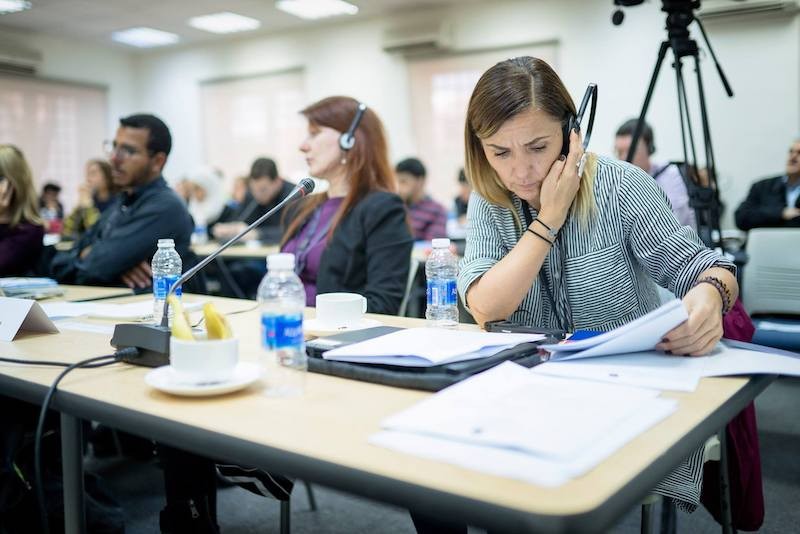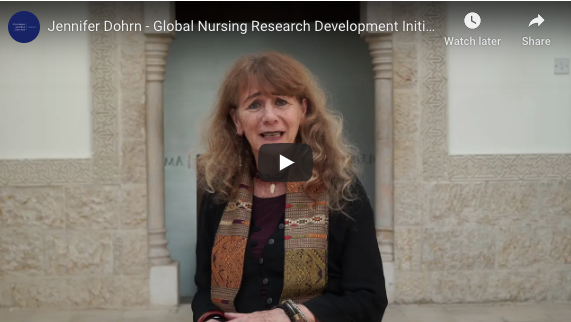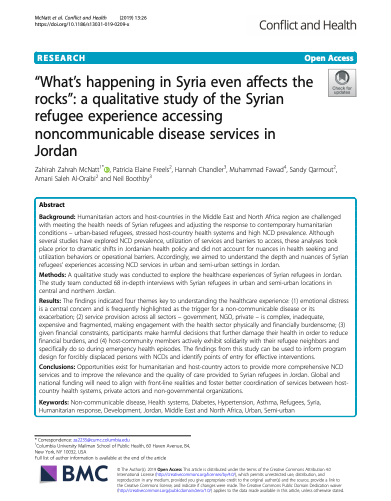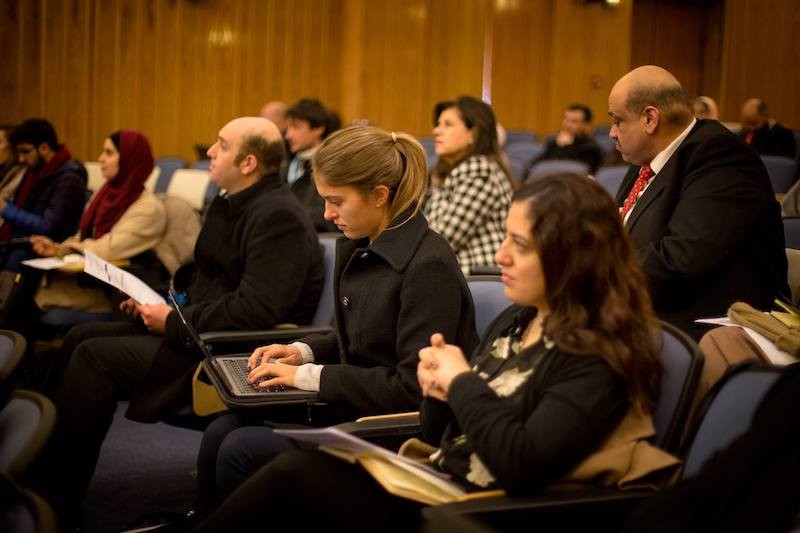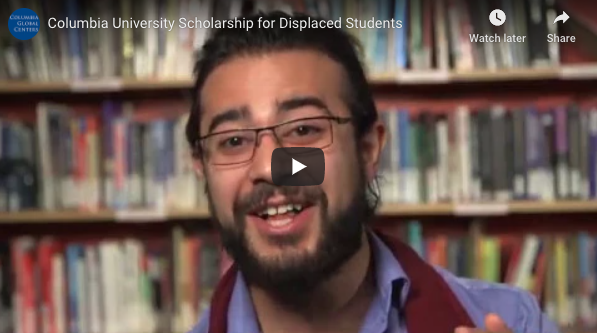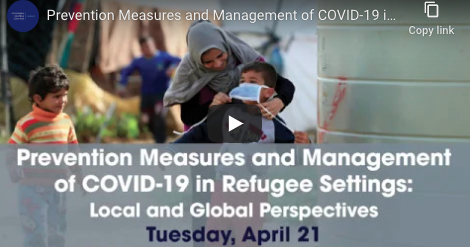Today, global society is facing an uncertain future and existential challenges. Perhaps no issue has loomed larger in recent years than the historic migration of people. The United Nations estimates that more than 82 million people are currently living as refugees or asylum-seekers, or have been internally displaced due to wars and natural calamity—the largest such population in human history.
Syria, with its border fewer than a hundred miles from Columbia’s Global Center in Amman, has been at the epicenter of this crisis. The immediacy and proximity of the Amman Center has allowed for a rapid deployment of academic resources to help deliver impact and is reflective of Columbia University’s commitment to better understand global challenges and help address and alleviate them where possible.
Over the years, Columbia Global Centers | Amman has become a hub on forced migration and displacement at both an academic and policy level. The Center has deepened engagement with local partners, international organizations, regional universities, and the Jordanian government to facilitate knowledge exchange between academia and practitioners. Through a multidisciplinary approach and a range of initiatives, we have supported the development of local capacity in research and data collection to address operational agencies’ programming and advocacy needs to inform policy recommendations.
In partnership with The University of Jordan, the Institute for Family Health, and the International Rescue Committee, the Center conducted a research study aimed to understand the gendered health and mental health concerns of Syrian refugee women living in non-camp urban settings throughout Jordan. It involved a cross-sectional survey distributed to hundreds of women over a period of six months, in which the findings informed intervention approaches and policies to develop comprehensive sexual and reproductive health services, and improve health outcomes for Syrian refugee women in Jordan.
The study was spearheaded by leading faculty at Columbia’s School of Social Work including Nabila El-Bassel, University Professor and Willma and Albert Musher Professor of Social Work; Neeraj Kaushal, Professor of Social Policy; and Anindita Dasgupta, Postdoctoral Research Scientist.
More information here.
As refugee assistance programs adapted to address medium- and longer-term needs, this research project explored how Syrian refugees’ self-reliance can be fostered to promote resilience and social cohesion with host communities. The project, led by Monette Zard, Allan Rosenfield Associate Professor of Forced Migration and Health and Director of the Program on Forced Migration and Health at Columbia University’s Mailman School of Public Health, explored lessons learned and ways forward for Syrian refugees’ protracted displacement in Jordan.
The research report highlights areas where strategic investments in policy and practice can be made to ensure that refugee access to education, livelihoods, and social assistance can be leveraged to address the needs of vulnerable populations and ensure better lives for all. A sustainable refugee response was crafted that strengthens national systems to support the self reliance and resilience of both displaced Syrians and host communities.
The project was done in collaboration with the Durable Solutions Platform and the Program on Forced Migration and Health at Columbia University.
“Self-reliance is the true essence, for a human to feel himself and
feel stability – if I’d rely on you and I wouldn’t know when you’d
cut aid from me, I wouldn’t be prepared. I wouldn’t be prepared
psychologically, I’d be frustrated, because the decision would be
yours, so I want my decision to be mine, in my own hands, the
decision of my children – how to feed them, how to dress them,
how to pay my rent.”
Syrian refugee man in East Amman
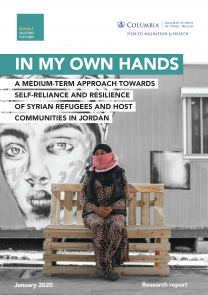
Learn more about this project from Monette Zard,
Director of the Program on Forced Migration and
Health at Columbia University.
In collaboration with the Dart Center for Journalism and Trauma at Columbia Journalism School, the Amman Center held a training workshop in January 2019 designed to build capacity for journalists covering the Syrian refugee crisis and response and to illustrate real life experiences bringing to light stories that desperately need to be told, heard, and seen.
The four-day workshop, led by Bruce Shapiro, Executive Director of the Dart Center, brought together 22 journalists from 16 different countries including correspondents from TV and radio reporters, photojournalists, newspaper reporters, and multimedia journalists. Workshop participants told stories of displaced people who witnessed war and examined the impact of conflict on refugee children and reporters alike. The workshop deepened participants’ understanding about the neuroscience of adversity and trauma, and provided them with tools on how to report on children in distress and help them thrive under stressful situations. Many of the participating journalists have lived in situations of conflict, and therefore presented their personal experiences when reporting on similar refugee crises.
A keynote speech was delivered by Her Royal Highness Princess Rym Ali JN ‘94, Founder of the Jordan Media Institute.
More information here
This project, spearheaded by Jennifer Dohrn, Associate Professor of Nursing at Columbia University Medical Center, examined the health status, reproductive health knowledge, attitudes, and practices of postpartum Syrian refugee women who live outside of formal camps in host communities across Jordan. The aim was to better understand the health needs and reproductive health practices of these women for the purpose of sharing recommendations and informing policy directions to provide reproductive health services more reflective of their voices and responsive to their needs. The project was carried out in partnership with the schools of nursing at Columbia University and the University of Jordan.
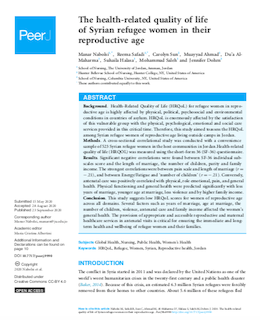
Listen to Jennifer Dohrn, Associate Professor of
Nursing at Columbia University Medical Center,
talk about this project.
A qualitative study was undertaken to provide an overview of the healthcare experience of Syrian refugees with non-communicable diseases (NCDs) residing in Jordan. The study paid specific attention to urban refugees’ personal perspectives about illness, approaches to healthcare decision making, operational barriers faced while accessing care, reflections on healthcare quality, and methods for coping with challenges of healthcare access and quality.
Findings of the research study were presented at Columbia Global Centers | Amman by Dr. Fouad Fouad, Assistant Professor of Public Health Practice at the American University of Beirut, and Zahirah McNatt, Senior Research Associate at Columbia University’s Mailman School of Public Health. Results were discussed to foster dialogue among stakeholders about how to improve the accessibility and quality of NCD services for refugees in non-camp settings.
The study was a collaborative effort among Columbia Global Centers | Amman, International Rescue Committee in Jordan, and the Department of Population and Family Health at the Mailman School of Public Health at Columbia University.
Refugee scholars face specific challenges that often limit the advancement of their academic work and inhibit their positive contribution to the scholarly community in host countries and around the world.
In partnership with the Andrew W. Mellon Foundation, Columbia Global Centers | Amman established the Mellon Fellowship Program to support emerging displaced scholars and create opportunities for them to reintegrate into academia and resume their scholarly pursuits. The program offers 12-month fellowships for up to 25 emerging displaced scholars working in the humanities and humanistic social sciences, over a period of four years. These scholars are PhD students and post-doctoral fellows who were forcibly uprooted from their home countries and respective academic institutions for reasons related to the emergence of security concerns and armed conflict.
The program involves a mentorship component whereby each fellow is matched with a relevant faculty member at Columbia University who helps them plan academic activities, conduct research and identify research sources, establish a professional peer network, and publish their work. Mentors are there to help scholars successfully navigate the journey through the fellowship program, and to inspire and guide them to reach their full potential in a supportive environment where they learn the essential methodologies, concepts, and wider context of their discipline.
The program is meant to generate the conditions to accelerate the development of emerging scholars’ work and research by providing them with access to educational resources, building their professional networks, harnessing their expertise, and promoting them as an asset to the global academic community. It serves to nurture fellows in a scholarly ecosystem and provide additional or alternative pathways to advance their research and help them embark on viable career paths in academia or other sectors serving the public good.
More information about the Fellowship is available here.
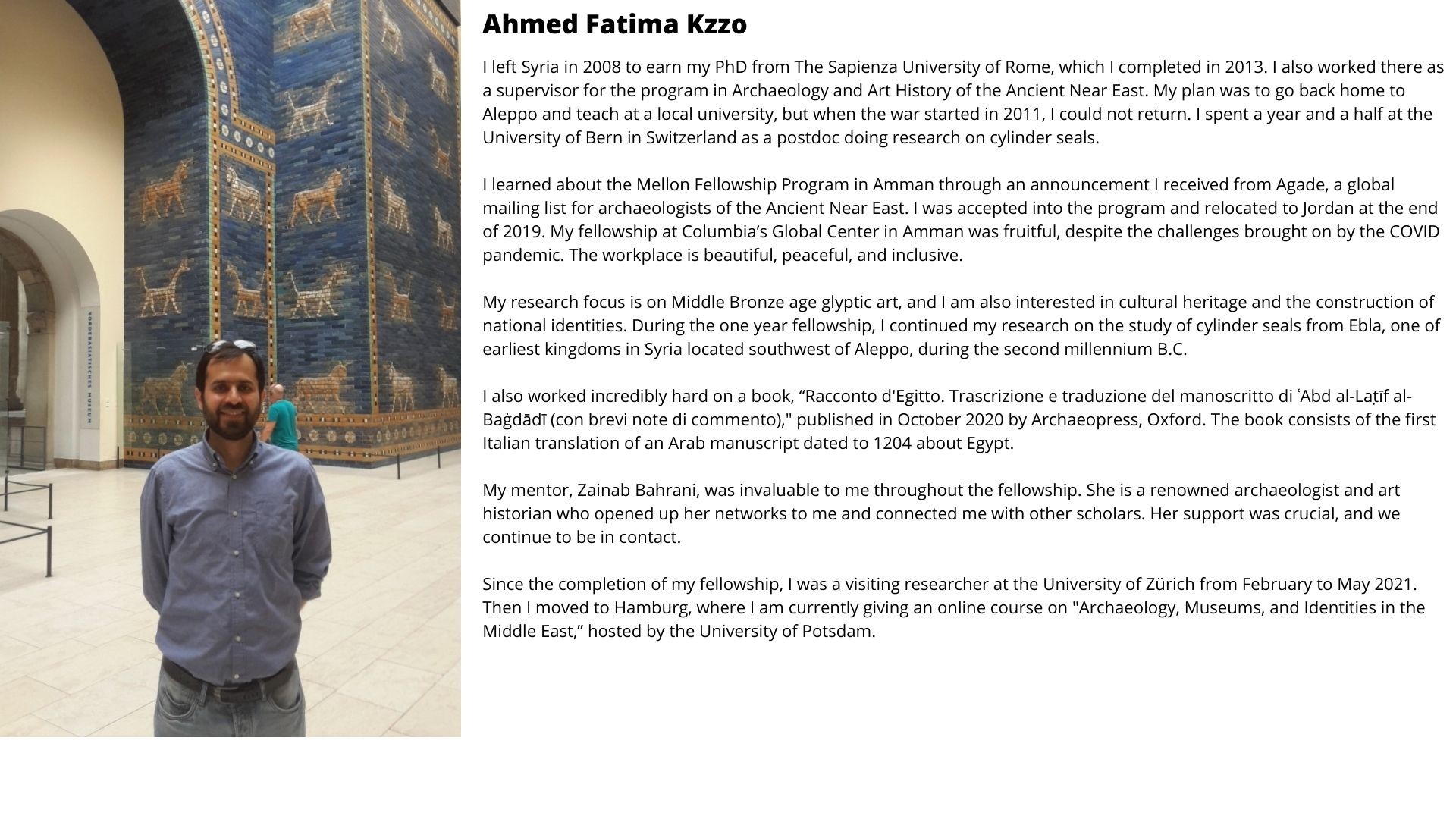
The United Nations (UN) estimates that more than 70 million people are currently living as refugees or asylum-seekers, or have been internally displaced due to wars and natural calamity – the largest such population in human history. A significant number of these individuals have had their education interrupted, severely impacting their potential for future success. The Columbia University Scholarship for Displaced Students (CUSDS) is an effort to combat this unprecedented humanitarian and economic loss by providing displaced students with the opportunity to pursue higher education at Columbia University, one of the leading educational institutions in the world.
More information and how to apply is available here.
The Columbia School of Social Work brought 16 students to Amman in 2018 and 2019 to provide an opportunity for students to gain knowledge and skills through a comprehensive study of Jordan’s experience with emergency response, assessing the unique culture, political and economic climate and humanitarian response practices. The course addressed barriers to economic opportunities, quality education and access to essential services affecting urban refugees in Jordan. Students analyzed social policies in the fields of health, education, employment, housing, livelihoods, and social work among others.
Faculty: Mashura Akilova
Columbia Global Centers | Amman, in partnership with Columbia University Mailman School of Public Health's Program on Forced Migration and Health and UNHCR MENA, held a special webinar to discuss policy responses to COVID-19 in refugee contexts in Jordan and Lebanon, and how support continues to reach people most in need.
The rate of increase in cases of COVID-19 is becoming greater in all parts of the world. As many countries are adopting containment strategies, enforcing months of lockdowns and intensifying medical battles to save coronavirus patients, the everyday social and economic patterns of societies are being dramatically disrupted. Such disruptions are exacerbated for refugees and forcibly displaced people who live in overcrowded settings, and who are already experiencing difficulty accessing healthcare and support services. Humanitarian actors are also faced with the challenge of containing and mitigating the spread of the COVID-19 pandemic across this most vulnerable community, and are advocating for their inclusion in national prevention and mitigation efforts.
During these unprecedented times, we must not lose sight of the impact of the pandemic on refugees and forcibly displaced people. As host governments and international aid groups are trying to figure out how best to move forward, there exists a clear gap when it comes to concrete evidence about the impact of COVID-19 on refugees, particularly those in urban settings, outside of refugee camps.
